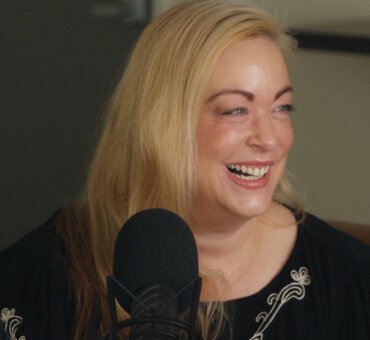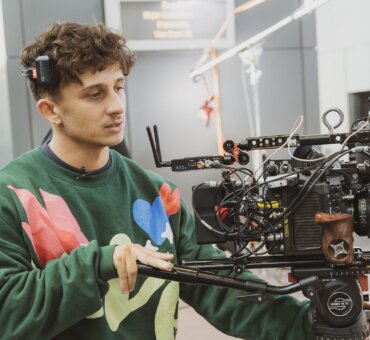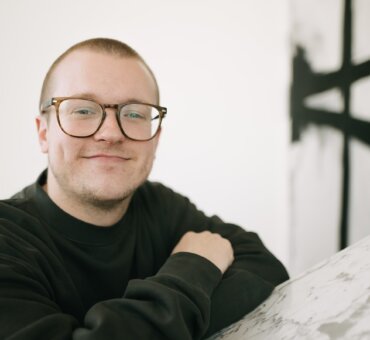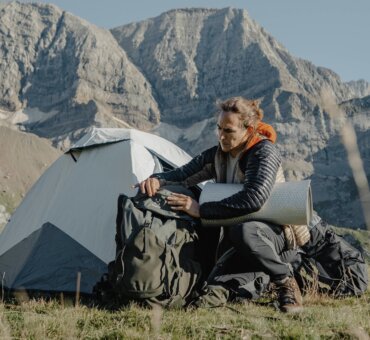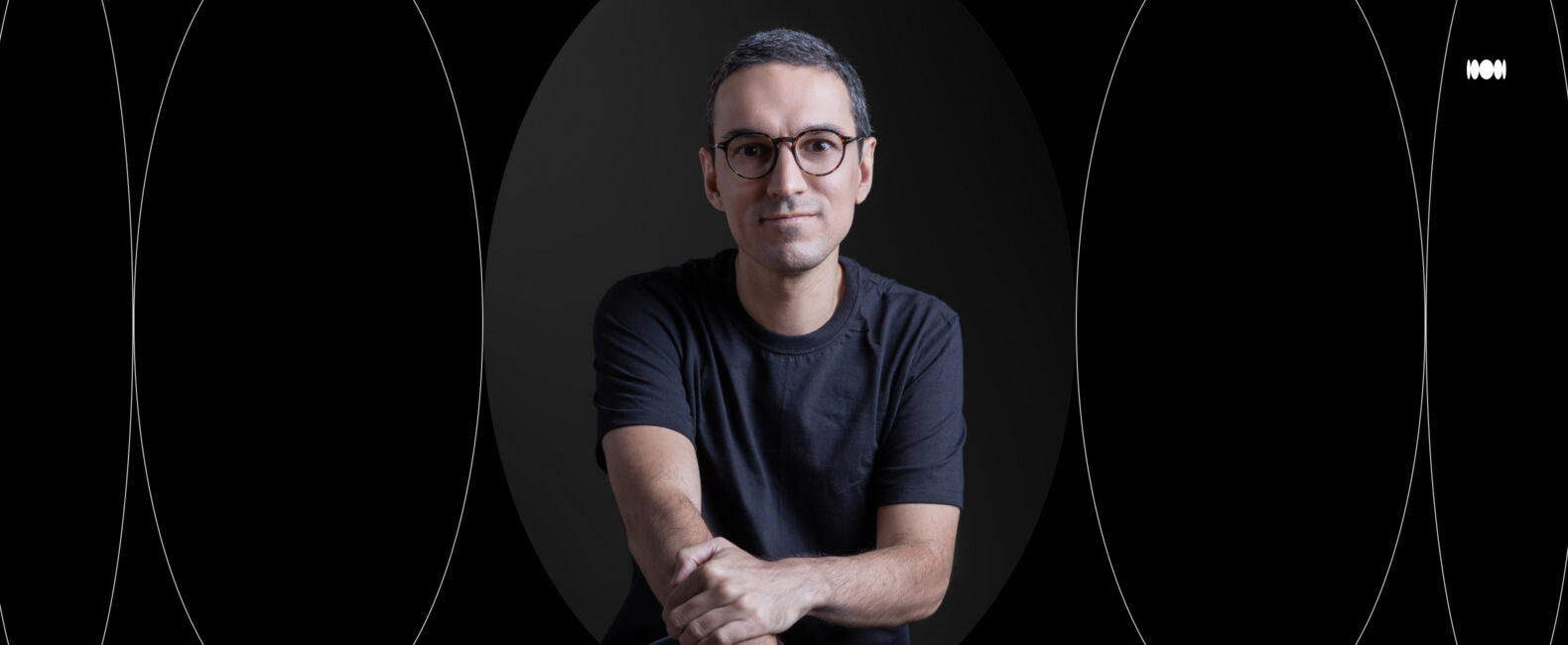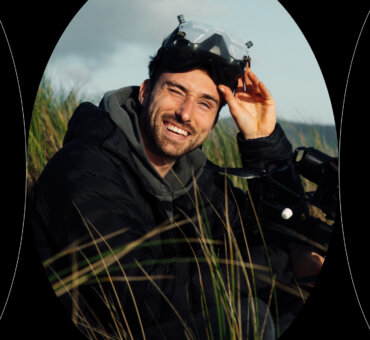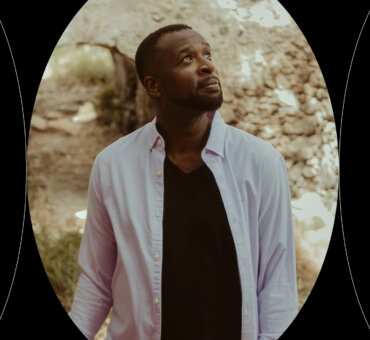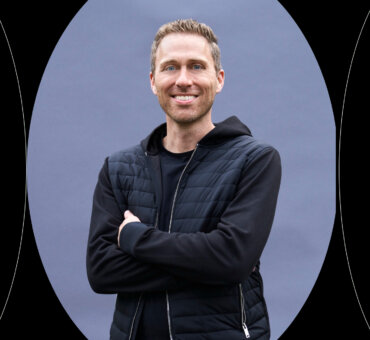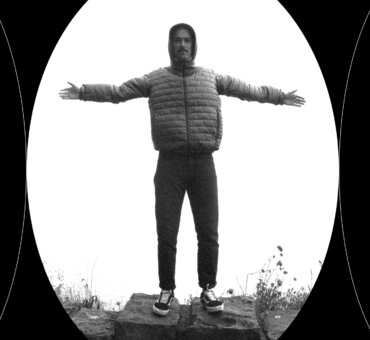Being a content producer with a background in editing, for Leonardo de Jesus production and creativity go hand in hand.
Now the Director of Content Production at R/GA São Paulo, his 15-year journey through the world of post-production, animation, and large-scale campaigns has shaped a creative perspective that’s anything but linear. Leonardo sees content production not just as logistics, but as an opportunity to enhance the storytelling and elevate the craft.
In this interview, he talks about the collective approach to music at R/GA Studios, the pivotal projects that shaped his career, and why the right song can sometimes steal the show.
MUSICBED: Walk us through your career. How did you get to where you are today as the director of content production at R/GA?
Leonardo de Jesus: I started in post, cutting footage and learning the rhythm of great storytelling from an editor’s chair. Over the years, I then redirected my career to become a producer, but that foundation still shapes the way I think.
I’ve always seen content production as more than logistics—it’s a creative craft, and I like to be in the thick of the ideas. I love to put my hands on a new script and start thinking of how it will look and how we can produce it in the best possible way with the resources we have available for the project.
For the past 8 years, I’ve led the Studio Arts team at R/GA São Paulo, which is a team composed of producers like me, video editors, and motion artists.
Today we work in a model that is called One R/GA, which means we create content not only for local clients, but also for other R/GA offices, especially the US one.
I consider myself lucky that I’ve grown into a leadership role that’s just as much about developing people as it is about making great content.
MUSICBED: Who has been a major influence or mentor in your career, and how have they impacted your approach to work?
Leonardo de Jesus: First, I must state that there are so many people who impacted and helped in my career that there’s no way of making this list without being unfair to someone.
That said, the first person would definitely be my dad, Paulo de Jesus, who, as a copywriter and a creative director, taught me a lot and whose passion for cinema influenced me in working with films.
I’d also include the names of Lorenzo Giunta and Daniel Caselli. Lorenzo owned a production company called Ioiô Filmes, and Daniel, who is a film director, worked there at the time.
There I did my first internship in the field, and it’s where I learned a lot of the skills that help me to this day.
RELATED READS: Good Life, Great Art: Thoughts on Mentorship
I also must mention Ernesto Neto and Celso Vilalba, two of my fellow editors, who taught me a lot when I was a video editor working at advertising agencies.
There’s also Saulo Rodrigues, who was ECD when I started at R/GA. Saulo’s approach of questioning everything and thinking outside the box wasn’t always easy on the day-to-day, but it always ended up pushing us in the right direction.
Finally, there’s Andrea Senise, who led the R/GA Studio team with me during my first years at R/GA. She is an amazing Motion Director and helped in setting the groundwork for what we do today here at the Studio.
MUSICBED: What have been some pivotal moments or projects that shaped your career?
Leonardo de Jesus: There’s one particular project that is special to me. It’s a project that involves multiple ads for the Brazilian beer brand Brahma, directed by Rog Souza.
Brahma Extra
Brahma Zero
Brahma Chopp
At the time, I was working as Senior Content Producer at one of Brazil’s biggest agencies, but hadn’t yet had the opportunity to produce a big project.
This project took almost a year from script writing and video production to the delivery of the last film. Working on it from the beginning made me feel like I owned a good part of it, even though it was a big collective effort.
Later on, it eventually opened the door to other projects and for me to work at R/GA Sao Paulo as a Studio lead.
MUSICBED: What’s something you’ve seen lately where the music really elevated the storytelling?
Leonardo de Jesus: I recently watched two feature film trailers that stuck with me—both because of how they used music.
As a former video editor, I love trailers. There’s real craft in distilling a two-hour story into 90 seconds and still making it hit. Here are two that stood out:
First, the Past Lives trailer. The music is subtle and poetic, existing purely to elevate the dialogue, and it nails it. Even when the score swells and the song “Stay” comes in at the end, the tone stays consistent. The music deepens the emotion without ever overpowering it. It’s a perfect match for a film that’s emotive, romantic, and restrained.
Then there’s Perfect Days. This trailer does the opposite. Lou Reed’s “Perfect Day” takes center stage, and the visuals support the song rather than the other way around.
The trailer is built around that song, and it works: the song is powerful, the scenes are moving, and together they make you want to watch the film.
RELATED READS: The Music That Moves the Cut: How the Score from “Severance” Uses Music to Shape Emotion
MUSICBED: Who in the industry do you think does a really great job at music selection? What projects has he/she worked on that left a lasting impression on you?
Leonardo de Jesus: I wouldn’t be able to spotlight individuals in the industry—especially since I’m based in Brazil—but at R/GA Studios, music selection is a collective effort.
It’s common to see a video editor, a content producer, and a creative director all digging for the right song together. We all see ourselves as creatives, and having multiple perspectives in the mix always pushes the work forward.
RELATED READS: 7 Perspectives on the Absolute Importance of Collaboration
That said, if I were to pick someone, I’d share the name of Daniel Truchi, who is one of our Senior Video Editors here at R/GA, based in Buenos Aires. He brings a lot of thought and taste to every project.
One project that really stayed with me was an animated ad we created for Samsung during the COVID years. It marked our first time working with both Samsung and the R/GA US team.
The stakes were high, and that project was proof that our cross-continental collaboration could work. The success of that campaign helped shape how we now operate: one unified Content Studio team working across the Americas.
MUSICBED: What’s your role in the music selection process across different stages of production?
Leonardo de Jesus: For me, it starts at the scoping phase. If you don’t reserve enough budget for music upfront, you’re already limiting your creative options. And because audio is the soul of any project, I always make sure we have room to license strong songs—like the ones on Musicbed—that elevate the work instead of restricting it.
If I’m involved in producing the project myself, I jump into the music search alongside the editor. It’s a habit I’ve kept from my editing days. Thinking about music means thinking about mood and structure. So when I find a song that fits, I’m already imagining how the cut could come together, even if I’m not the one doing the actual editing.
RELATED READS: The Art and Science of Music Selection With Joanna Batemits
The last step is to share my research with the editor and the project’s creative lead and exchange ideas. Sometimes, they go in the direction I suggest, and sometimes, they don’t, which is fine as well.
However, by having multiple people working on music selection, we are already prepared for different approaches to the edit.
MUSICBED: Tell us about a song choice that completely changed a client’s perspective on a project you were working on.
Leonardo de Jesus: A few years ago, we produced a launch film for an investment bank called Ágora, introducing them to the Brazilian market. We proposed creating an original song with vocals to heighten the emotion.
The client gave us the green light, and we produced both the song and the film.
When the film went live, we were surprised by the response. Audiences loved the song! Social media lit up with comments asking, “What song is this?”
The client embraced the buzz around the song so much that we produced a second version of the film with karaoke lyrics. In the end, the song brought more audience to the project than the film itself.
I’d be unfair if I didn’t mention the song was produced by studio L O U D +, based here in São Paulo.
MUSICBED: What would you say the difference is between trending music in advertising and musical tropes? How do you help creatives break out of overused tropes musically?
Leonardo de Jesus: Trending music and tropes both have their ups and downs. Just because a song is popular doesn’t mean it fits the project—sometimes we have to push back and show why it’s not the best choice.
But when a trending song does work, it instantly puts the film in a different level.
RELATED READS: Music in Film Trend Report | 2025
Tropes are safer—they rarely surprise. They tend to land well when you have a clear direction of what the film needs to convey, but I don’t see them as being the best option when you need a score that works as a big punch.
To sell a song idea, the best approach is to show options. Side-by-side comparisons make it clear what elevates the story and what doesn’t.
MUSICBED: What does music/sync licensing look like in five years from now? What are things you’re excited about? What are some things that make you nervous?
Leonardo de Jesus: I believe the biggest change in our industry is the rise of AI in our day-to-day.
Regarding music, I’m excited about the idea of using AI to help me find a song faster and help artists compose songs, but I don’t like the idea of having songs produced entirely by AI.
I see AI as a great tool that opens a lot of creative doors, but like any tool, it only enhances the human creativity, it doesn’t replace it.
MUSICBED: What about Musicbed stands out to you? Why would you recommend Musicbed as a resource for advertising creatives?
Leonardo de Jesus: The thing that stands out to me the most about Musicbed is the quality of the songs there.
For me, the songs there are better than any other music licensing library for advertising, and you can get music there that doesn’t sound “stocky.”
Music Curated by Leonardo de Jesus
Take a peek into the mind of Leonardo de Jesus and see which songs fuel his creative fire.


